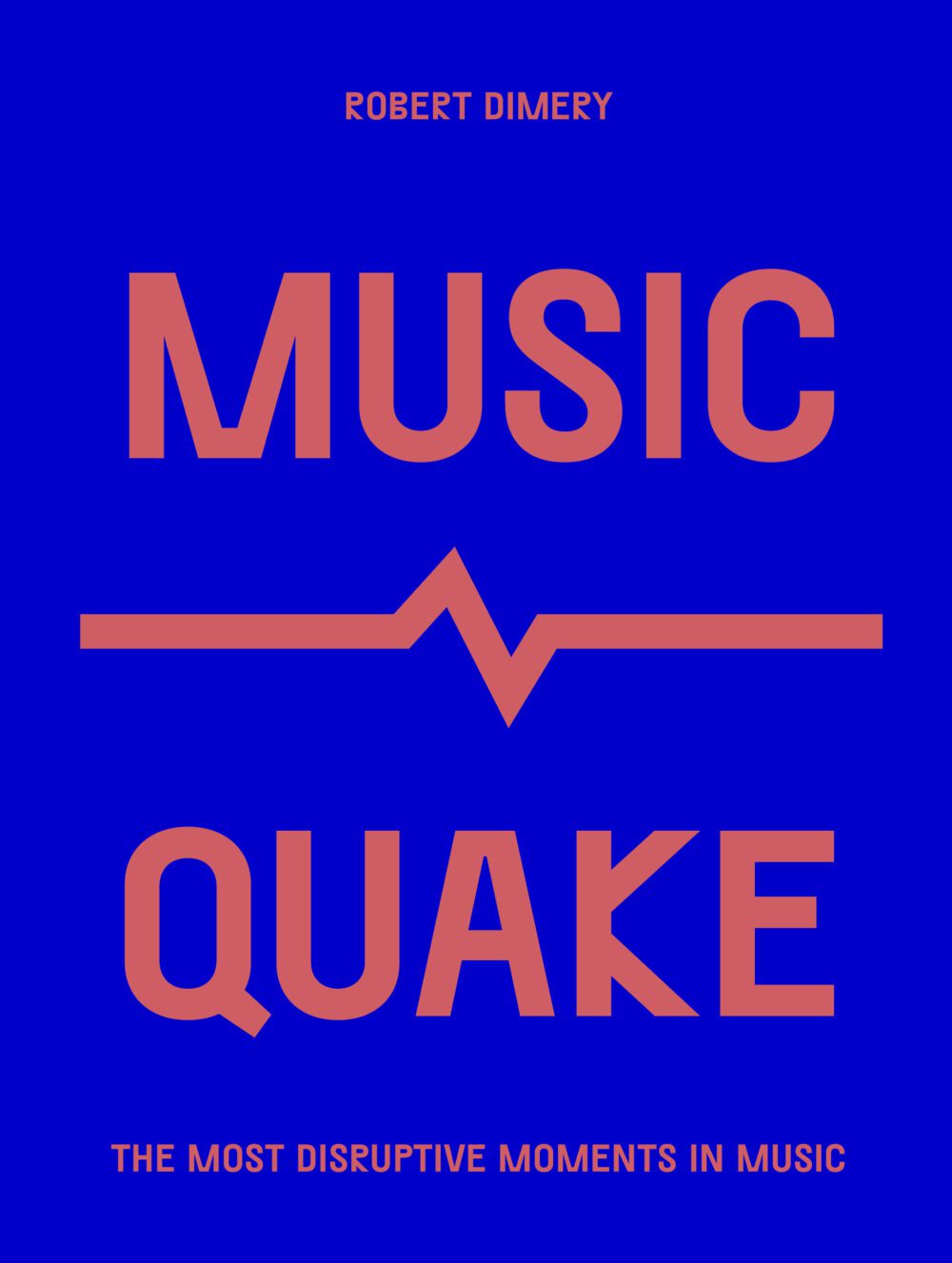If you’re new to reading ADDICTED or you simply hadn’t noticed before, music is woven into the fabric of what we do. We live and breathe it. So when I received a copy of MusicQuake by Robert Dimery, I just knew I had to share it with you.
In its own words ‘MusicQuake tells the stories of fifty pivotal albums, songs and performances that shook the world of modern music.’ Spanning more than a hundred years, from 1913 to the present day, MusicQuake acknowledges some of the most defining moments in and of musical history. One of these moments that truly altered the course of modern music happened in 1977, with the release of Donna Summer’s ‘I Feel Love’; a song who’s legacy lives on even today and which went someway to earning her the title ‘The Queen of Disco’.
I was born in 1983 and raised in the wake of the disco era. My parents would play disco music all the time at home and to this day my mum and I text each other when we hear certain disco classics. Disco music is the soundtrack to my life so it fills me with great joy that the genre has experienced a recent revival, with artists such as Kylie Minogue, Jessie Ware, Lady Gaga and Dua Lipa all taking inspiration for their recent albums.
Rather fittingly, Queen Bey herself Beyoncé chose to take I Feel Love and sample it on her track Summer Renaissance from the album Renaissance, giving the song a new lease of life and introducing it to a brand new audience an incredible forty five years after its original release. If that’s not testament to the sheer brilliance of this iconic song, then I don’t know what is.
You can read the exclusive extract The Future of Dance Music below.

MusicQuake
THE FUTURE OF DANCE MUSIC
‘I FEEL LOVE’
DONNA SUMMER
1977
With I Remember Yesterday, Summer, along with producers Giorgio Moroder and Pete Bellotte, had planned an album covering pop music across time, from 40s swing to whatever the future might hold. For the final track, they came up with what they thought might sound like space-age disco. It put the rest of the album firmly in the shade. ‘I Feel Love’ proved that electronic music didn’t have to be cold; here, it’s sensual, erotic, ecstatic, sexy – and supremely danceable in a way that Kraftwerk’s sleek ‘Trans-Europe Express’ and ‘Europe Endless’ (released the same year) weren’t, but which shares their hypnotic ambience. Synthesized rhythms and tones replaced the sweet string sections that had studded so many disco tunes. A juddering bass line – on a borrowed Moog Modular 3P synth – complemented the throbbing electro pulse. The Moog periodically went out of tune, so Moroder and Bellotte had to patiently piece together the bass part from short snippets. The track was an entirely in-the-box electronic creation save for Summer’s cooed, delirious vocals and a bass drum. By accident, an engineer put a delay on the beat that happened to be at the same tempo, effectively doubling the song’s pulse, making it more insistent – one reason why ‘I Feel Love’ became part of the DNA of electro disco, Hi-NRG, house and techno. Remarkably, a remix the following year by Patrick Cowley is almost as noteworthy, extending the ecstasy to around the 15-minute mark while retaining the original’s mesmerizing pull. ‘I Feel Love’ was a UK No.1 (for four weeks), and a No.6 and a gay dance staple Stateside, but stood apart from its disco peers. Rather like the Sugarhill Gang’s ‘Rapper’s Delight’, what might have been a novelty (like 1972’s synth-led hit ‘Popcorn’, say, or Space’s electronically nuanced ‘Magic Fly’, a hit in the summer of 1977) became a stepping stone to an entirely new sound world. Brian Eno knew it immediately. Then in the midst of working with David Bowie on a trio of game-changing albums in Berlin, he told the singer, ‘This is it, look no further. This single is going to change the sound of club music for the next 15 years.’ And counting.
About the author:
Robert Dimery is a writer, editor and music expert who has worked on Tony Wilson’s 24 Hour Party People and Breaking Into Heaven: The Rise and Fall of the Stone Roses, plus countless other popular music publications. He was general editor of 1001 Albums You Must Hear Before You Die and 1001 Songs You Must Hear Before You Die and has worked for a variety of magazines, including Time Out London and Vogue.
MusicQuake by Robert Dimery is published by Frances Lincoln and available from all good book retailers now, priced £12.99


